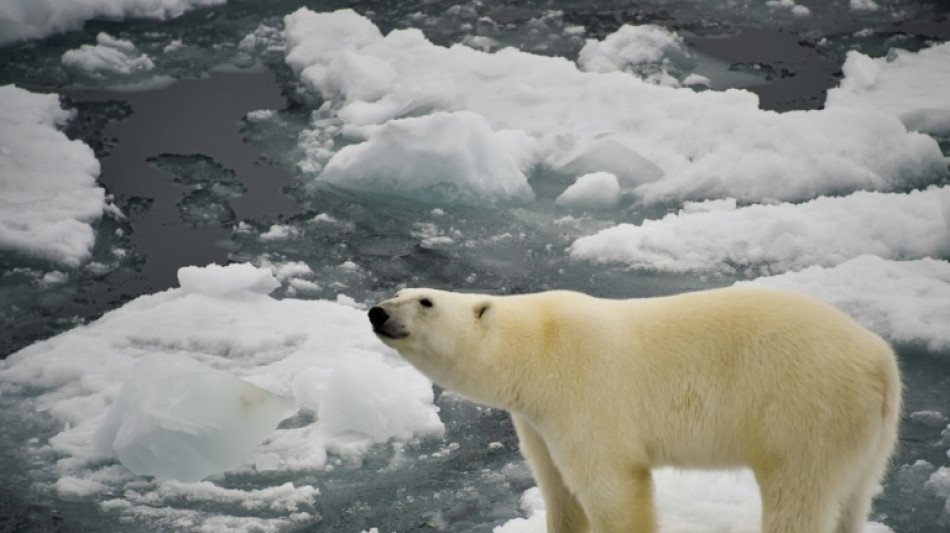
-
 Japan PM's tax giveaway roils markets and worries voters
Japan PM's tax giveaway roils markets and worries voters
-
Amid Ukraine war fallout, fearful Chechen women seek escape route

-
 Rybakina surges into Melbourne semis as Djokovic takes centre stage
Rybakina surges into Melbourne semis as Djokovic takes centre stage
-
Dollar struggles to recover from losses after Trump comments

-
 Greenland blues to Delhi red carpet: EU finds solace in India
Greenland blues to Delhi red carpet: EU finds solace in India
-
Will the EU ban social media for children in 2026?

-
 Netherlands faces 'test case' climate verdict over Caribbean island
Netherlands faces 'test case' climate verdict over Caribbean island
-
Rybakina stuns Swiatek to reach Australian Open semi-finals

-
 US ouster of Maduro nightmare scenario for Kim: N. Korean ex-diplomat
US ouster of Maduro nightmare scenario for Kim: N. Korean ex-diplomat
-
Svitolina credits mental health break for reaching Melbourne semis

-
 Japan's Olympic ice icons inspire new skating generation
Japan's Olympic ice icons inspire new skating generation
-
Safe nowhere: massacre at Mexico football field sows despair

-
 North Korea to soon unveil 'next-stage' nuclear plans, Kim says
North Korea to soon unveil 'next-stage' nuclear plans, Kim says
-
French ex-senator found guilty of drugging lawmaker

-
 US Fed set to pause rate cuts as it defies Trump pressure
US Fed set to pause rate cuts as it defies Trump pressure
-
Sleeping with one eye open: Venezuelans reel from US strikes

-
 Venezuela's acting president says US unfreezing sanctioned funds
Venezuela's acting president says US unfreezing sanctioned funds
-
KPop Demon Hunters star to open Women's Asian Cup

-
 Trump warns of 'bad things' if Republicans lose midterms
Trump warns of 'bad things' if Republicans lose midterms
-
Russian strikes in Ukraine kill 12, target passenger train

-
 With Maduro gone, Venezuelan opposition figure gets back to work
With Maduro gone, Venezuelan opposition figure gets back to work
-
Celebrities call for action against US immigration raids

-
 Rubio to warn Venezuela leader of Maduro's fate if defiant
Rubio to warn Venezuela leader of Maduro's fate if defiant
-
Denver QB Nix 'predisposed' to ankle injury says coach

-
 Lula, Macron push for stronger UN to face Trump 'Board of Peace'
Lula, Macron push for stronger UN to face Trump 'Board of Peace'
-
Prass stunner helps Hoffenheim go third, Leipzig held at Pauli

-
 Swiss Meillard wins final giant slalom before Olympics
Swiss Meillard wins final giant slalom before Olympics
-
CERN chief upbeat on funding for new particle collider

-
 Trump warns US to end support for Iraq if Maliki returns
Trump warns US to end support for Iraq if Maliki returns
-
Judge reopens sexual assault case against goth rocker Marilyn Manson

-
 South Korea's ex-first lady to learn verdict in corruption case
South Korea's ex-first lady to learn verdict in corruption case
-
Rosenior dismisses Chelsea exit for 'untouchable' Palmer

-
 Markram powers South Africa to win over West Indies
Markram powers South Africa to win over West Indies
-
Vladimir Padrino: Venezuela's military power broker

-
 Amazon closing Fresh and Go stores in Whole Foods push
Amazon closing Fresh and Go stores in Whole Foods push
-
Koepka nervous about game and fans in PGA Tour return

-
 Trump's Iowa trip on economy overshadowed by immigration row
Trump's Iowa trip on economy overshadowed by immigration row
-
Dortmund coach says Inter Milan are improved under Chivu

-
 US border chief in Minneapolis as Trump tries to calm crisis
US border chief in Minneapolis as Trump tries to calm crisis
-
What to know about America's colossal winter storm

-
 Iran warns against 'instability' after US strike group arrives
Iran warns against 'instability' after US strike group arrives
-
GM reports quarterly loss but boosts shareholder returns

-
 US banks fight crypto's push into Main Street
US banks fight crypto's push into Main Street
-
NFL Bills make offensive coordinator Brady new head coach

-
 TikTok settles hours before landmark social media addiction trial
TikTok settles hours before landmark social media addiction trial
-
Newcastle braced for 'ultimate test' against PSG after storm disruption

-
 Brook blitz ends Sri Lanka's unbeaten home run, England clinch series
Brook blitz ends Sri Lanka's unbeaten home run, England clinch series
-
LVMH 2025 net profit drops 13% to 10.9 bn euros

-
 Philip Glass pulls Kennedy Center premiere after Trump takeover
Philip Glass pulls Kennedy Center premiere after Trump takeover
-
Slot says Liverpool must fix 'very bad cocktail'


UN holds biodiversity talks on deal to stave off mass extinction
Global efforts to cut plastic and agricultural pollution, protect a third of wild spaces, and ultimately live "in harmony with nature" will dominate UN biodiversity negotiations starting Monday, held in person after a two-year pandemic delay.
Almost 200 countries are due to adopt a global framework this year to safeguard nature by mid-century from the destruction wrought by humanity, with a key milestone of 30 percent protected by 2030.
The aim is also to safeguard the "services" nature supplies: the air we breathe, the water we drink, the soil that yields the food we eat.
The meeting in Geneva will set the stage for a crucial UN biodiversity summit, initially due to be held in China in 2020 and postponed several times. It is now expected to take place at the end of August.
Geneva is a chance to strengthen a draft global biodiversity agreement "that many observers feel currently lacks the teeth needed to meaningfully address interconnected biodiversity and climate crises that cannot be solved in isolation", according to the Nature Conservancy.
Campaigners have for years called for a deal on halting biodiversity loss similar to what the Paris Agreement outlined for the climate.
Previous efforts to halt this devastation have fallen short, with countries failing, for example, to meet almost all the biodiversity targets set in 2010.
But despite often being overshadowed by the efforts to combat climate change, the plight of the natural world is no less catastrophic.
Intensive agriculture is depleting the soil and fouled waterways, oceans are overfished, plastics and other pollutants are invading ecosystems and threatening our health.
And now climate change is a growing threat that could compound all of these problems.
Last month, the UN's Intergovernmental Panel on Climate Change warned that nine percent of all the world's species will likely be "at high risk" of extinction even if warming is capped at the ambitious Paris target of 1.5 degrees Celsius.
In 2019, a report by UN biodiversity experts said one million species could disappear in the coming decades, raising fears that the world is entering its sixth era of mass extinction in the last half-billion years.
"We only know of about 10 percent of the species that exist on Earth. Some disappear without even having been described, nor ever seen by any human being," Anne Larigauderie, executive secretary of the Intergovernmental Science-Policy Platform on Biodiversity and Ecosystem Services (IPBES), told AFP.
- Ambition -
The United Nations Convention on Biological Diversity (CBD) is aiming to reverse that trend with its global framework.
This round of negotiations began in Rome in February 2020 and was swiftly brought to a halt by the Covid-19 pandemic, though online sessions continued and a draft text was finished in 2021.
It is hoped the in-person meeting in Geneva will move the process closer to a global deal at the UN's COP15 summit in China.
"Will we be able to settle everything? That's the big question," Basile van Havre, one of the two co-chairs of the negotiations, told AFP.
The draft outlines some twenty targets for 2030, including the high-profile ambition to protect at least 30 percent of the Earth's land and water habitats.
It also outlines objectives on reducing the amount of fertilisers and pesticides discharged into the environment and cutting at least $500 billion per year of subsidies harmful to Nature and ecosystems.
But as it stands, Guido Broekhoven of WWF said, the text is "not ambitious and comprehensive enough to address the current biodiversity crisis".
Observers will judge whether the mechanisms put in place -- such as monitoring and enforcement -- correspond to the targets set, said Sebastien Treyer, director general of the IDDRI think tank.
There will also be significant attention on the "mobilisation of financial resources", which are of particular importance to the Global South, he said.
Even the goal of the so-called High Ambition Coalition to protect 30 percent of the planet by 2030 might not be enough, observers said.
"If we do not tackle the indirect causes (of biodiversity loss), in particular production and consumption, there will always be strong erosion," said Juliette Landry, a researcher at IDDRI.
M.Ouellet--BTB




